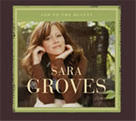We have the Supreme Court, and lawyers and politicians and flacks by the thousands, to interpret the U.S. Constitution and its Bill of Rights for us. But what if it doesn't need all this nuanced interpretation? What if it means just what it says in plain English?
If the Bill of Rights means what it says, then the Supreme Court and those thousands of lawyers and politicians and flacks have a lot of explaining to do about how they have violated those simple rules. Just for fun, I'm going to start an irregular series and go through each of the first 10 amendments to the Constitution and, without resorting to books and Web sites full of constitutional research that tells me what it means, I'll just assume it means what it says - and go from there.
Congress shall make no law respecting an establishment of religion, or prohibiting the free exercise thereof; or abridging the freedom of speech, or of the press, or the right of the people peaceably to assemble, and to petition the government for a redress of grievances.Wow! There's a lot of stuff in the First Amendment. First off, it says Congress can't establish a national church like the Church of England, and everyone shall be free to exercise whatever religious practices they like. Methodists, Catholics, Evangelists, Shiites, Sunnis, Buddhists, Hindus, Satanists, Wiccans, Druids, Native American shamans - they're all free to exercise their religious beliefs. And atheists have the right to believe in none of it. It doesn't say that religious beliefs are banned from public discourse in any fashion or in any place; it does say that we are free to believe and worship any way we want. It doesn't say we have a right not to be exposed to other people's beliefs; in fact, quite the opposite - we have the right to disagree, but other people have the freedom to exercise their religious beliefs, period. P.S. Government employees are people.
Next it says Congress can't pass a law abridging the freedom of speech. That seems easy enough to figure out. That means especially that anyone can criticize politicians anytime, any place - I say "especially" because, as you might recall, this stuff was written by people who had just engaged in the ultimate criticism of their government: They overthrew it and were starting over.
So it means you can't confiscate banners at political rallies or assign protestors to a specific "zone" far away from the podium. It means that the speaker can't be shouted down - because the speaker has freedom of speech, too - but the time and place to exercise freedom of speech is now and everywhere. Just as with freedom of religion, it doesn't say we have a right not to be exposed to other people's beliefs; in fact, quite the opposite - we have the right to disagree, but other people have the freedom to speak their mind, period.
I'm skipping ahead, but these so-called "First Amendment zones" also violate the right of people "peaceably to assemble, and to petition their government for a redress of their grievances." "Peaceably" is a key word - can't throw rocks or heckle the speaker into submission - but you sure can assemble and criticize the government, whenever and wherever you darn well please. As better writers than I have declared, the whole country is a First Amendment zone.
"Freedom of the press" means we have the right to publish stuff, free of government interference. Again, this was written by revolutionaries who were mainly concerned about political opinions, so their concern was clearly about protecting the right to question the government (Think "Common Sense"). Pass a law saying you can't take out an ad criticizing a politician within 60 days of an election? Are you crazy? What part of "no abridging the freedom of speech, or of the press" do you not understand?
Freedom of the press also means you can't tell a business it can't advertise its legal products. Sure, my newspaper or TV station can decide it won't accept ads for cigarettes or whiskey, but the government can't pass an all-inclusive ban on those ads. It also means you can't toss a reporter in jail for doing her job.
I mentioned the right to assemble above - it means people who don't like the president are free to sit in the front row at his speeches and groan in disgust (if they can score a seat there) as long as they're peaceable about it - it means Nazis have a right to hold a parade in a Jewish neighborhood, just as the neighbors have the freedom either not to come to the parade or to stand on the curb peaceably saying unpleasant things about Nazi thugs.
The freedom to petition the government for a redress of grievances means, for example, a woman whose son was killed in a war and her supporters have the right to petition the government to end that war. Again, people who think the war's a nifty idea have the right to peaceably sit in the front row at her speeches. I'm thinking she doesn't have a right to a personal visit with the president, but she sure has the freedom to ask for one, and anyone who says she doesn't is wrong - although that person has the freedom to say something that makes it obvious he hasn't read the First Amendment.
This is by no means an all-inclusive list, just a thought-starter and conversation-starter intended to show how if the First Amendment means what it says, it seems to me there's a whole lot of violatin' the First Amendment going on at multiple levels - and the Second Amendment, all the way to the 10th. That's the problem with plain English - if you believe in it, cans of worms start opening everywhere you look.

 The thought clicked as I watched Bale, as Bruce Wayne, being trained in the ninja arts by Liam Neeson, in a scene ("Mind your surroundings") that was very reminiscent of Neeson as Qui-Gon Jinn in Star Wars Episode I: The Phantom Menace. It was easy to imagine Bale as the impatient Jedi padawan of Ewan McGregor's Obi-Wan Kenobi. Bale also did well handling the evolution of Bruce Wayne into the Batman, just as he had handled the man with a secret in Equilibrium.
The thought clicked as I watched Bale, as Bruce Wayne, being trained in the ninja arts by Liam Neeson, in a scene ("Mind your surroundings") that was very reminiscent of Neeson as Qui-Gon Jinn in Star Wars Episode I: The Phantom Menace. It was easy to imagine Bale as the impatient Jedi padawan of Ewan McGregor's Obi-Wan Kenobi. Bale also did well handling the evolution of Bruce Wayne into the Batman, just as he had handled the man with a secret in Equilibrium.















